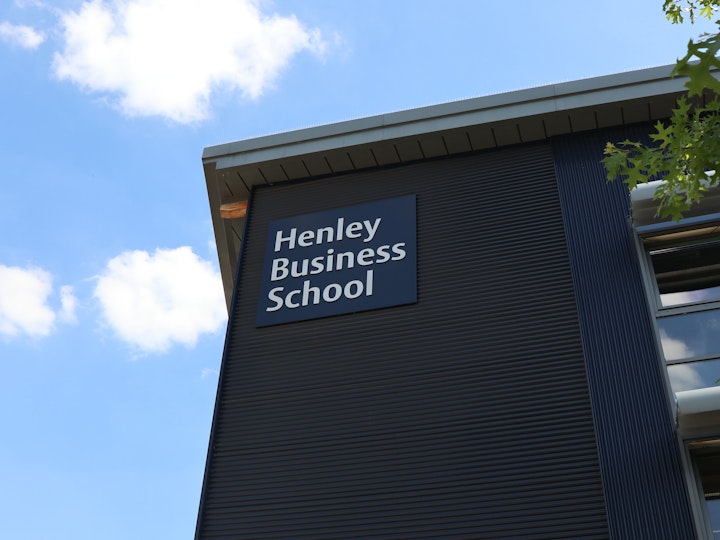IBS Departmental Research Meeting - Top Managers’ Social Work Experience and Refugee Wage Disadvantages By Vera Rocha, Grazia Santangelo and Wolfgang Sofka
IBS Departmental Research Meeting - Top Managers’ Social Work Experience and Refugee Wage Disadvantages
By Vera Rocha, Grazia Santangelo and Wolfgang Sofka
Presenter - Dr Wolfgang Sofka

| Event information | |
|---|---|
| Date | 11 October 2023 |
| Time | 13:00-14:30 (Timezone: Europe/London) |
| Price | Free |
| Venue | Henley Business School, Whiteknights Campus |
Event types: |
|
You are cordially invited to attend an IBS Departmental Research Meeting, during which there will be a presentation by Dr Wolfgang Sofka, Copenhagen Business School. A reminder that attendance for IBS (full time, research oriented) staff and full-time students is compulsory, and where possible, must be in person. Individuals unable to attend in person, due to legitimate reasons will be provided a Teams link on request. Non-IBS staff are welcome to attend but must register prior to the event. If you have not received the email invite please email Angie Clark.
Please join us in Room 108, Henley Business School, if you would like to attend, please register using the link below:
Please make sure you let me know in advance if you intend to attend in person so that the correct amount of catering is booked.
Title: Top Managers’ Social Work Experience and Refugee Wage Disadvantages
By Vera Rocha, Grazia Santangelo and Wolfgang Sofka
Presenter: Dr Wolfgang Sofka – Copenhagen Business School
Date: Wednesday 11th October 2023
Time: 13.00 – 14.15 pm
Abstract
Forced migration challenges host countries to integrate large numbers of refugees. Equality in employment opportunities and work conditions are critical for integration. However, most refugees are paid less than what is earned by domestic employees with similar human capital. This has been explained by labor market frictions allowing firms to bargain for the lowest possible wages when recruiting employees with few outside options, such as refugees. This perspective overlooks firm heterogeneity and assumes that firms face no stakeholder pressures or reputation damages from extracting as much value as possible from vulnerable employees. We leverage upper echelon theory and argue that top managers who have worked for advocacy groups in the past and, thus, were exposed to stakeholder and societal concerns will pay comparatively higher wages to refugees and reduce the disadvantage they face vis-à-vis domestic employees with similar characteristics. To isolate this effect, we reason that this effect is stronger in contexts where top managers have more managerial discretion, i.e., in resource-abundant firms and high-growth markets. Our analysis supports our hypotheses for a sample of 174,303 employees (including 7,284 refugees) hired by 10,137 firms in Denmark between 2001 and 2016.
You might also like
Insight Session - Senior Leader Apprenticeship | Business Administration
Greenlands Masterclass - From Difference to Dynamism: Unlocking Performance Through Inclusion - NEW
Rising Star: Chartered Manager Degree Apprenticeship | BA (Hons) Management Practice - Insight Session
This site uses cookies to improve your user experience. By using this site you agree to these cookies being set. You can read more about what cookies we use here. If you do not wish to accept cookies from this site please either disable cookies or refrain from using the site.